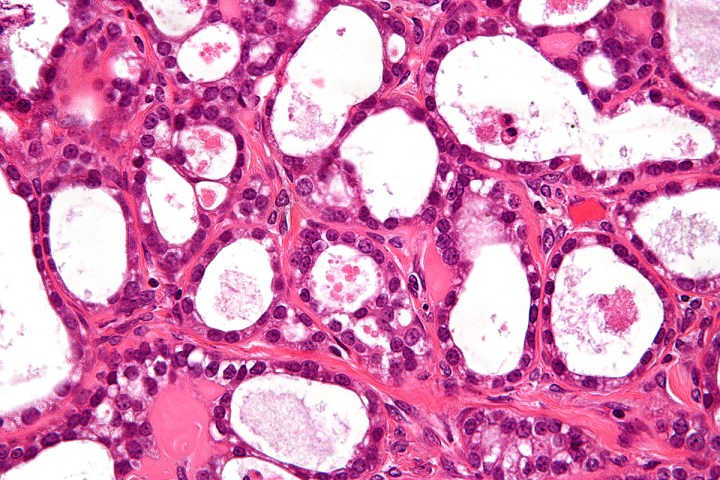
Theranostic approaches just gained another ally, according to a paper published in the journal Nanomedicine: Nanotechnology, Biology and Medicine. Researchers at Lomonosov Moscow State University and the Leibniz Institute of Photonic Technology say they’ve created the first ever cancer detection and treatment with silicon nanoparticles.
Although gold nanoparticles are currently the gold standard for nanoparticle cancer treatment, metals in general pose biocompatibility challenges. “The reason is that gold, silver, titanium oxide, cadmium selenide and a plenty of other nanoparticles are almost not excreted,” senior research fellow at the Physics Department of Lomonosov Moscow State University Liubov Osminkina explained in a press release. “When nanoparticles reach the bloodstream, they can get stuck in internal organs and after a while they begin to harm the organism due to prolonged toxic effects.”
Osminkina and her team looked for a compound that would be both biocompatible and biodegradable. They say they found that substance in porous silicon, which could both help detect the disease and treat it by dissolving into silicic acid, an important compound for maintaining bone strength and connective tissues.
“Thus, for the first time we have shown that porous silicon nanoparticles could be completely harmless theranostics agents for many types of cancer,” Osminkina said. “They do not only easily penetrate into the diseased cell, but when filled with drug, can emit it [while] dissolving. I believe that the results of our work are of great importance in the long term as the basis for creating drugs based on biocompatible and biodegradable silicon nanoparticles.”


